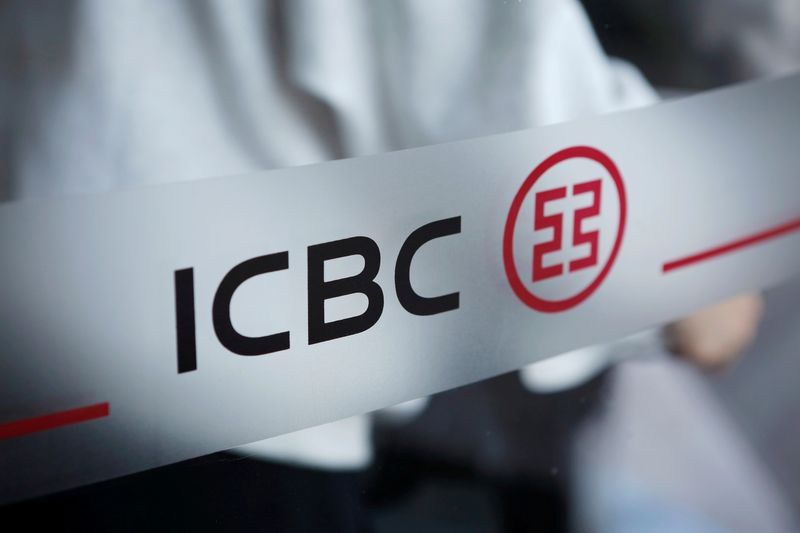By Ziyi Tang, Xie Yu and Engen Tham
BEIJING/SHANGHAI (Reuters) -Five of China's largest banks showed wounds from the ongoing property sector crisis, with bad debts linked to real estate surging in the first half of the year, even as they posted modest profits against the backdrop of an economic slowdown.
The first-half results come after the world's second-largest economy narrowly avoided contracting in the second quarter as widespread COVID-19 lockdowns and the slumping property sector badly damaged consumer and business confidence.
China Construction Bank (OTC:CICHF) Corp (CCB) and Bank of China Ltd (BoC) reported a 68% and 20% increase in bad real estate debt in the first half of this year on Tuesday in exchange filings.
Meanwhile, the world's largest commercial lender by assets Industrial and Commercial Bank of China Ltd (ICBC) posted a 15% rise in real estate sector soured debt over the same period.
"Affected by the epidemic and the downward pressure on the economy, the current operating environment of banks is complex and grim," vice president Wang Jingwu of ICBC said at a press conference after the release of results.
"It is difficult for some industries and customers that are greatly affected by the epidemic and economic cycle to operate," Wang added.
This sentiment was echoed by CCB president Zhang Jinliang on Wednesday at a post-earnings press conference.
"The Chinese economy faces fairly large downward pressure this year," said Zhang.
ICBC, BoC and CCB are the latest banks to report growing bad debt in the real estate sector, amid a gloomy first half in which rising developer defaults halted housing projects, leading to mortgage boycotts.
The Bank of Communications (BoCom) and Agricultural Bank of China (OTC:ACGBF) Ltd (AgBank) warnings of caution and levels of soured loans were in a similar vein.
Harry Hu, a senior director at S&P Global (NYSE:SPGI) Ratings estimates that Chinese banks’ non-performing ratio in the property development sector will rise to around 5.5% to 5.6% by year-end, up from a 2.6% sector-wide NPL ratio at end-2021.
Despite the mounting bad debt, the state council and regulators are pushing the bank to increase lending to the property sector, chief Liu Jin at BoC said at a separate news briefing on Wednesday.
Mortgage defaults are "not only a social stability problem, but also a potential financial stability problem, because mortgage is usually good-quality asset of banks,” said Hu.
At CCB, overdue mortgages caused by the boycotts hit 1.14 billion yuan at the end of July, said Li Yun, vice president of the bank.
And analysts warn that the housing market flux is more likely to harm smaller lenders.
"Regional banks concentrated in those local markets are more exposed to the shock of larger-than-average decline in housing prices," said Nicholas Zhu, a banking analyst at Moody's (NYSE:MCO).
"This could increase the loan-to-value ratios for the regional banks’ property loan portfolio which means a weakening of the collateralization of property loans, hence a higher asset risk."
Despite the bad loans in the property sector, of the five lenders, only BoC saw a slight rise in overall NPL ratios, as bad debt in other industries slowed or held steady for the lenders.
And all five reported between 4.9% to 6.3% net profit increases in the first half compared to a year earlier.
BoCom, AgBank, ICBC and CCB posted falling net interest margins - a key indicator of bank profitability, and banks and analysts predict that NIM will continue to slide.
Chinese banks’ profits will continue to face downward pressure, as the falling LPR this year dampened banks’ interest income, said Hu.
($1 = 6.9100 Chinese yuan renminbi)
